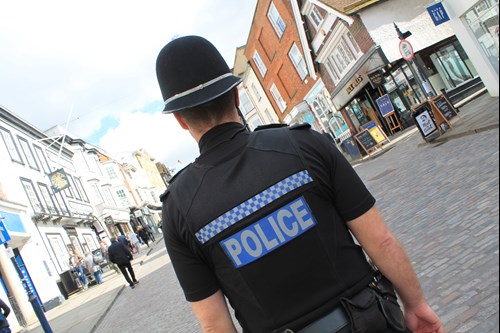Just a staggeringly low 7% of Surrey Police officers work in neighbourhood policing
23 June 2023

Just 7% of Surrey Police officers work in neighbourhood policing, which is a staggeringly low figure, Surrey Police Federation has said.
Federation Chair Darren Pemble was speaking to Sarah Gorrell on BBC Radio Surrey earlier this week about new research that showed that fewer than one in eight police officers across England and Wales were 'bobbies on the beat'. Surrey Police was among the forces with the lowest proportion of officers on neighbourhood police teams.
Although the Government’s uplift programme has led to 20,000 new officers coming into policing, neighbourhood teams are not seeing the benefit.
Darren said: “I’m taken aback by the numbers, even though I’m in the service myself. It’s quite staggering. I’m a local person myself, so you look out the door sometimes and you want to see police officers around because it makes you feel a little bit more safe.
“From 25 years’ service, starting in the late 1990s, I remember the days when I had to go out on foot patrol and you’d build a bond with your local community. People would come up to you and speak to you, and you’re out there hopefully deterring the criminals and antisocial behaviour.”
He continued: “Demand has been incessant. Police are going from job to job, chasing their tails. We just want to be on the streets, reassuring and protecting the public. But when you’re decimated by cuts and you’ve got budget constraints, things become very difficult, and how do you balance that?
“When you pay officers so little and you expect so much from them, it becomes demoralising. How do you combat that? Greater pay is a start.”
Sarah asked if it was realistic to expect as many bobbies on the beat these days, because crime has changed and there is so much online crime and other issues for officers to deal with.
Darren responded: “Policing is much more complex now and crime has evolved. But if the funding had evolved with the crime, and allowed Chief Constables and police services to increase their numbers and diversify across the board, then we could still have good local neighbourhood community policing.”
The research also showed that the number of Police Community Support Officers (PCSOs) in England and Wales has fallen by more than 4,000 since 2015.
Darren said: “A lot [of PCSOs] go up to join regular policing, which we welcome. But that leaves a hole behind them, because of the relationships and the contacts they’ve made during their time.”
The Home Office argues that Chief Constables are the ones making decisions about where officers are deployed. But Darren said the Government was “passing the buck”.
He said: “They took 20,000 police officers away and put policing into austerity, like they did the rest of the country. Now they’ve realised their error, recruited back that 20,000 at a pace that has caused some issues. But then, we’re back to where we were 10 to 15 years ago and the population has increased and demand’s increased. We’re back behind the curve again. How do you compete against that?”

















